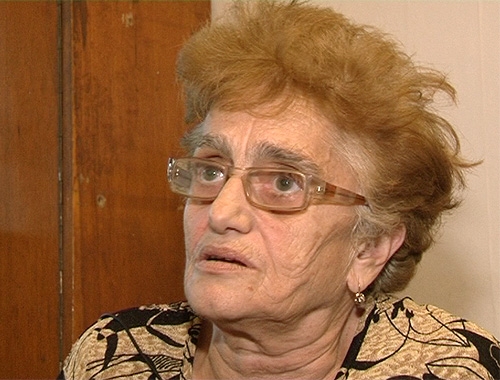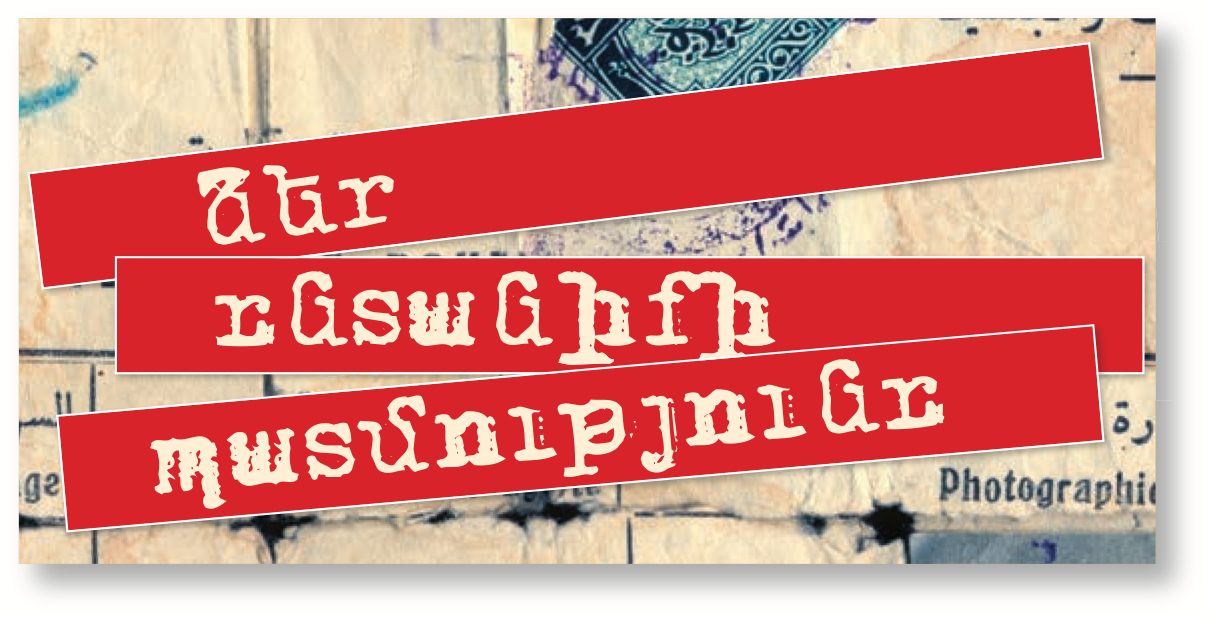 Repatriated from Cairo, 1947 / Resides in Yerevan
Repatriated from Cairo, 1947 / Resides in Yerevan
Shushik Jamgochyan
My father and mother were children in an orphanage. My father started working at the age of fourteen. He became the owner of three stores in Alexandretta and religiously sent 20% the profits to Armenia via the Armenian Assistance Committee. For a long time, my father and his sister never talked. He had married an Italian.
In a word, my parents decided to come to Armenia where my mother’s aunt was living at the time. She wrote us a letter telling us to bring enough food for forty years.
We brought everything with us and had enough to eat. So much, in fact, that we donated food to others.
But my father was greatly disillusioned because he came to Armenia and didn’t see any trace of patriotism. He said that this wasn’t our homeland, that it was Russia. The love for anything Russian was so widespread that my mother decided that she had to teach me Armenian history. In addition to what I learnt in school, my mother was quite strict when it came to teaching me Armenian every day.
My grandmother couldn’t take it and died cursing the homeland. She never couldn’t get over the fact that she had been separated from her girls.
Our family, thank god, was spared the exile. It was 1949. My mother and I were alone at home. They came and banged on the door. My mother told them that she wouldn’t open the door unless they came with someone in authority, an official with them. She never opened the door.
My father had gone to Noubarashen. On the way back, a police acquaintance told him that all the newcomers were about to be rounded up and taken away. That man was also an orphan and told my father that he would hide him at their house. My father refused, saying that his wife and child were alone back home.
Our neighborhood representative was also a repatriate and said good things about us in high places. He said that my father had been a member of the Armenian Assistance Committee and that we never complained about the Soviet regime. So, we were never exiled.
One time, we visited a relative’s house. The door was locked. He was a tashnag but had left the party before moving to Armenia. They exiled him. My mother was saddened by what happened.
The local Armenians would ridicule us. “Are you Armenians or aghpars?” they would ask. I would respond, “I’m a sister, but you’re an idiot…” Aghpar means brother, but many used it in a derogatory manner.
It’s understandable, the local people had lost everything. There was the war and all. And now they had brought others to sleep next to them. All of a sudden, they had brought thousands of people and moved them into their homes. Houses were divided and food was divvied up. That is, if there was food…
The repatriates from Greece and some places in Syria were poor, while those from France, Egypt and America were rich when they came. It was a case of simple human jealousy - not only were they settled in our land, but were eating and dressed well. The locals even started to take our clothes. When my father came he wore a tie; how can you not wear a tie? They would pull on the tie saying, it’s a donkey’s collar.
They did the same to our intellectuals in 1923-1930. The people here were destitute and deprived. I do not accuse them. It was the government that created those contradictions.
To preserve the homeland, they brought people from the outside. But Russia proved to be cleverer and took them away to develop Siberia.
I never thought about moving from Armenia. In 1973, when I was 30, I traveled to Italy. Before leaving, my mother ardently requested that I never forget the homeland and that I return. My aunt in Italy had everything, except children. I, of course, saw great disparity. Everything there was amazing, but I wasn’t fooled and I returned to Armenia. Having a homeland, with all its shortcomings, is the best thing.
We create the shortcomings. It’s not the fault of the land or water…My heart is pained because we are unable to teach our children proper patriotism. If they had such patriotism, they would endure all the difficulties.
My daughter went to France in 2000 to study. As my mother once told me, I told my daughter, “If you go, you can forget me. I am opposed to you going. Our intelligent people have been going and developing other lands for too long.”
Every time someone leaves, I feel sorry for that person. Yes, let the rabble go. Whoever loves money, let them go. But, when I see a smart person leaving, an intellectual, I cry. Believe me.



















